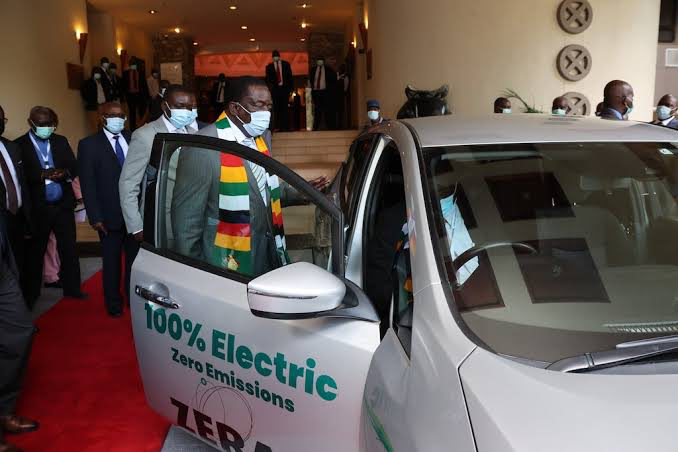Zimbabwe is making strides towards greener transportation with the development of its National Electric Mobility Policy, signaling a pivotal shift in the country’s approach to mitigating climate change through the adoption, use, and disposal of electric vehicles (EVs). The announcement, made by the Transport and Infrastructural Development Minister Felix Mhona at the 86th Session of the UN Inland Transport Committee in Switzerland, underscores Zimbabwe’s commitment to environmental sustainability and innovation in mobility.
In a significant move towards electric mobility, the Zimbabwe Energy Regulatory Authority (ZERA) inaugurated the country’s first commercial EV charging station at a Petrotrade Filling Station in Gweru this March. This initiative marks the beginning of a nationwide plan to expand the EV charging infrastructure, aimed at fostering sustainable transportation and reducing carbon emissions. With ZERA at the helm, the push for electric vehicles comes as part of Zimbabwe’s broader strategy to curb climate change and its carbon footprint, showcasing the regulatory body’s dedication to renewable energy uptake.
Despite the nascent stage of its electric vehicle market—boasting around 30 EVs currently—the government is actively promoting the shift towards electric mobility. Through the Central Mechanical Engineering Department (CMED), a state-owned enterprise, there is an ongoing program for the procurement and deployment of EVs, highlighting the government’s proactive stance in embracing clean energy solutions. The push for electric mobility is not without substantial support. At the Africa Climate Week in Gabon in 2022, the Ministry of Environment, Climate, Tourism and Hospitality Industry laid out an ambitious e-mobility roadmap, aiming for a 33% market penetration of EVs by 2030. This vision is backed by a significant $335 million government subsidy, designed to encourage the adoption of electric vehicles, with a considerable portion allocated to buses, three-wheelers, two-wheelers, personal, and taxi four-wheelers.
To make EVs more appealing, the government plans a VAT reduction for electric vehicles, significantly lowering the cost for consumers and promoting a switch from internal combustion engine vehicles, which will see a VAT increase. This financial strategy is part of a larger effort to incentivize the adoption of cleaner, more sustainable transportation options. Zimbabwe’s rich lithium reserves, ranking fifth globally, play a critical role in the country’s electric mobility strategy. Lithium, a crucial component in EV batteries, not only represents a significant economic asset but also positions Zimbabwe as a potential hub for battery production, given its substantial lithium exports and employment opportunities in the mining sector.
The anticipated growth of the EV market could also reignite Zimbabwe’s vehicle assembly plants, leveraging the country’s skilled workforce in mechanics and engineering. This shift towards electric vehicles offers a dual opportunity to revitalize the automotive industry and promote renewable energy sources, addressing both transportation and energy needs. With Zimbabwe’s current electricity demand outstripping supply, the adoption of renewable energy, such as solar micro-grids, in tandem with electric mobility, could play a crucial role in meeting the country’s energy requirements while supporting a transition to electric vehicles.
Zimbabwe’s National Electric Mobility Policy represents a forward-thinking approach to transportation, one that embraces the benefits of electric vehicles to combat climate change, boost the economy through its lithium reserves, and pave the way for a sustainable, electrified future. This initiative not only positions Zimbabwe as a leader in electric mobility in Africa but also highlights the country’s commitment to environmental stewardship and economic innovation.



